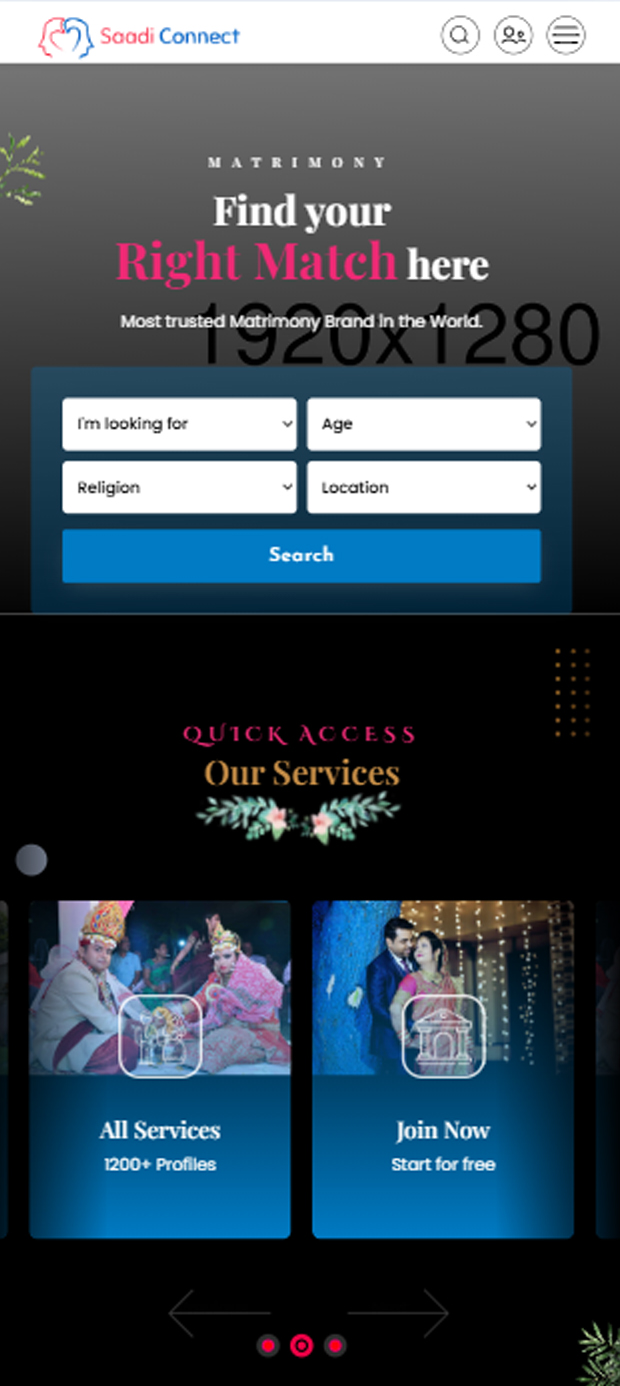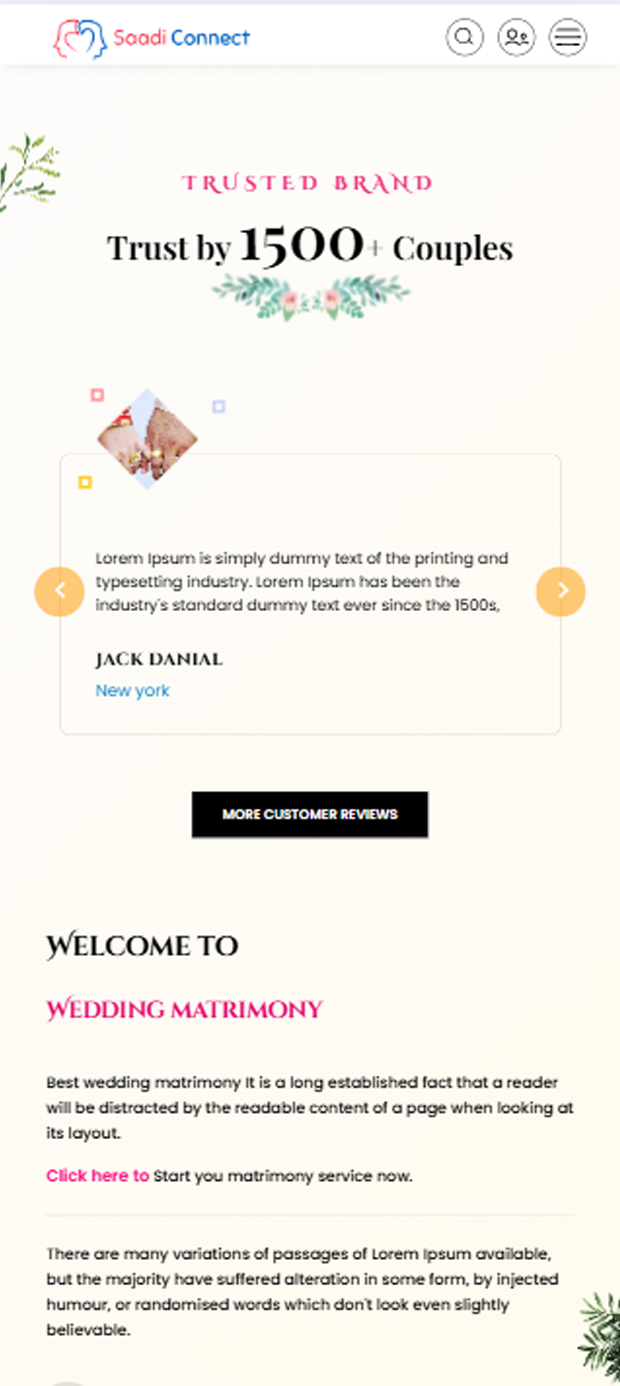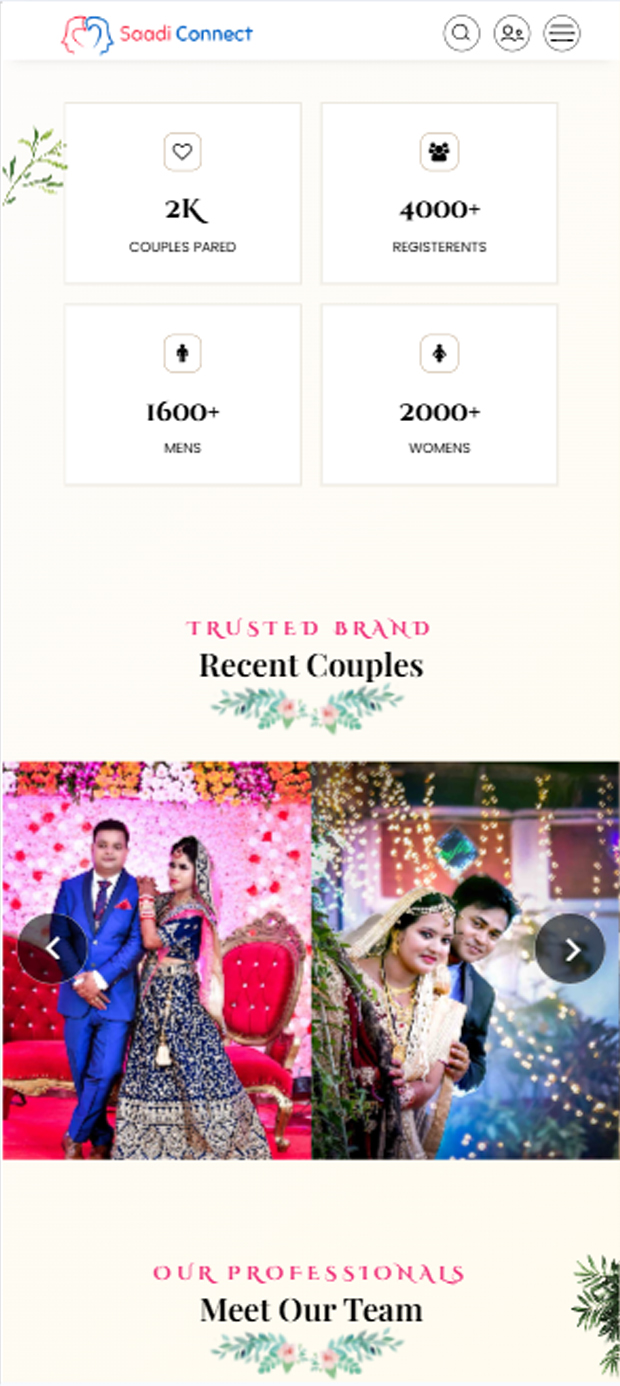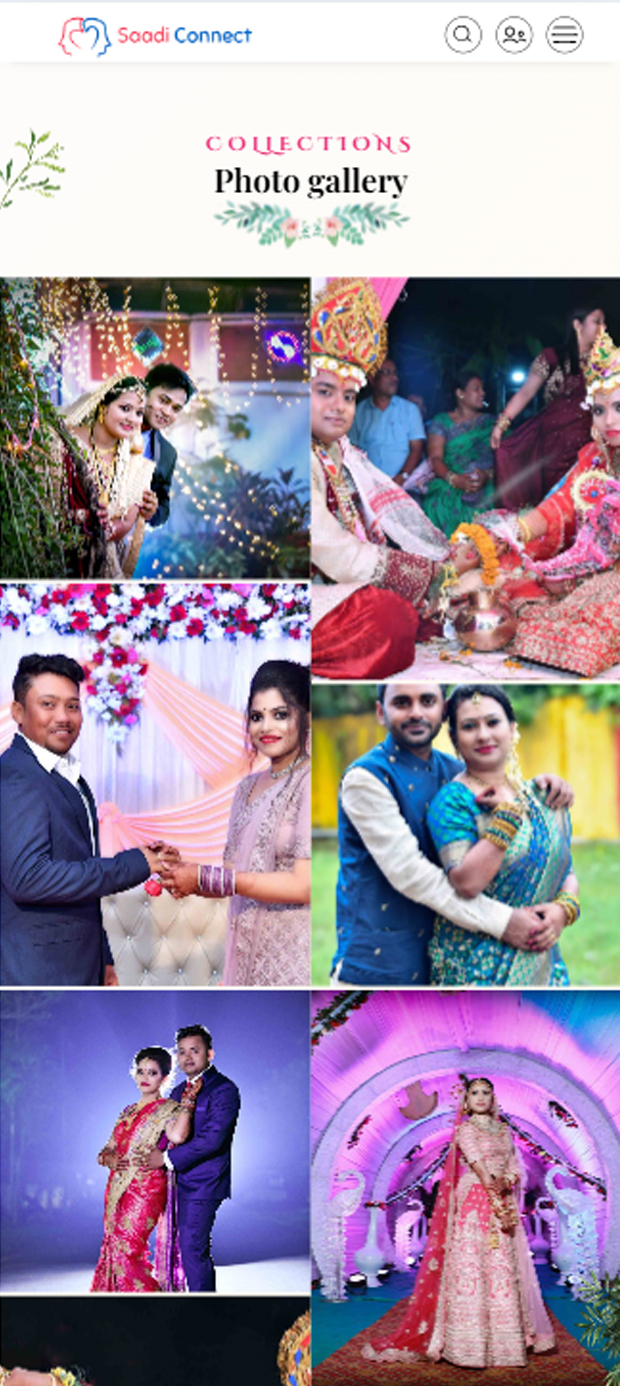Create Your Own Matrimony Portal – Best Price with Complete Source Code
Matrimony Portal in India
Are you ready to start your own matrimonial platform? At AIONINNO Technologies, we specialize in creating feature-rich, customizable matrimony portals designed to connect people and bring families together. We offer affordable pricing with full source code, so you can manage and scale your platform as needed.



Key Features of Your Matrimony Portal
User Registration & Profile Management:
Allow users to create and manage detailed profiles, including personal information, preferences, and photos.
Advanced Search and Filters:
Enable users to search for potential matches using advanced filters based on location, religion, caste, age, and more.
Matching Algorithm:
Provide users with compatible match suggestions based on preferences and detailed profiles.
Privacy & Security:
Implement strong security features to ensure users’ data and personal information are protected.
Email & SMS Notifications:
Keep users engaged with notifications for profile matches, messages, and updates.

Admin Panel:
A powerful backend to manage user profiles, content, payments, and more. Admins can approve or reject profiles, manage memberships, and track platform activity.
Paid Membership:
Offer premium memberships with enhanced features, such as unlimited messaging and profile visibility.
Photo & Video Uploads:
Allow users to upload photos and videos to their profiles for a more personalized experience.
Messaging & Chat:
Let users communicate privately with potential matches through a secure messaging system.
Why Choose Us for Your Matrimony Portal?
- Affordable Pricing
We provide high-quality matrimony portal development at a competitive price that won’t break your budget. - Complete Source Code
Get full access to the source code, giving you complete control over your matrimony platform for future updates, customizations, and scalability. - Fully Customizable
Tailored to your specific needs and preferences. Customize the portal’s look, feel, and functionality to match your brand’s identity. - Responsive Design
Your portal will be fully mobile-responsive and user-friendly, ensuring a seamless experience for users on any device. - Quick Deployment
Get your matrimony portal launched swiftly with our streamlined development process, ensuring your platform is up and running in no time.
Affordable Packages for Your Matrimony Portal
We offer flexible packages to meet the needs of businesses of all sizes. Whether you are just starting out or need an advanced solution, we can customize a matrimony portal that fits your budget and goals.
What You Get with Your Matrimony Portal
- Fully Functional Matrimony Portal
A complete, ready-to-launch matrimonial website with all the features you need to connect people. - Source Code Access
Receive the full source code, allowing you to make future changes, updates, or customizations at any time. - Customized Design
Tailored design to reflect your brand’s unique identity and ensure a pleasant user experience. - Admin Panel
A comprehensive admin panel to manage users, content, and payments easily. - Post-Launch Support
Enjoy 3 months of free technical support to ensure your portal continues running smoothly.
Start Your Matrimony Portal Today!
Are you ready to create your very own matrimony platform? Don’t miss out on the opportunity to enter the thriving matrimonial market with a custom solution designed for success. We’re here to help you get started!
Contact Us Today!
Phone: 9777797668
Email: mail.aioninno@gmail.com
Why Choose AIONINNO Technologies?
- Expertise: We have years of experience in developing feature-rich matrimonial portals.
- Customization: We tailor every project to meet your specific needs and vision.
- Support: Our team provides continuous support to ensure your platform is always up-to-date and secure.
- On-Time Delivery: We ensure that your matrimony portal is launched on schedule without compromising quality.
Let’s Build Your Matrimony Portal Together
With AIONINNO Technologies, you get more than just a website. You get a fully functional, customizable matrimony portal that can scale as your business grows. Let’s make your vision a reality!



